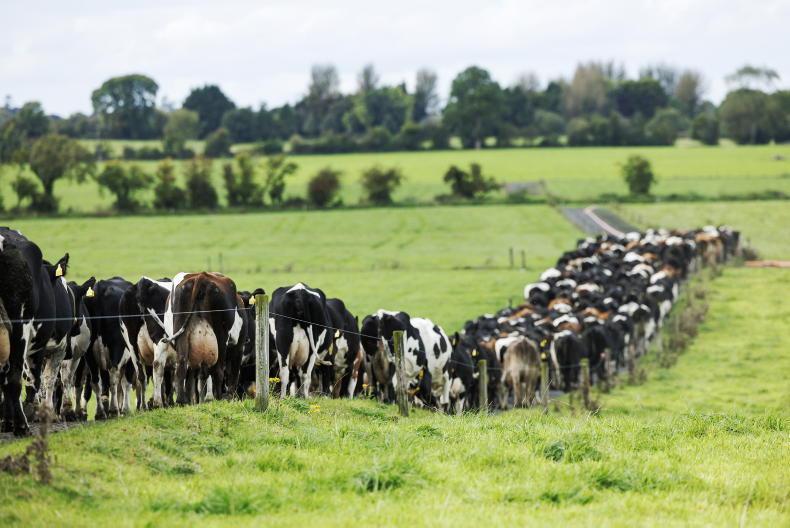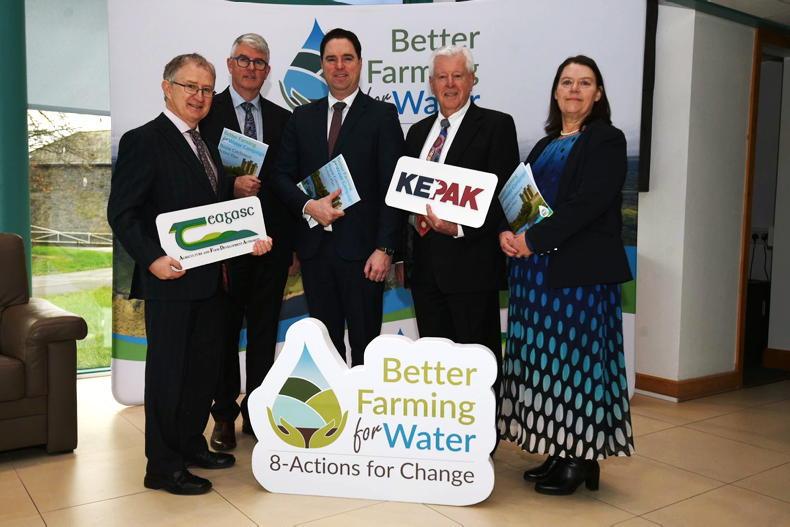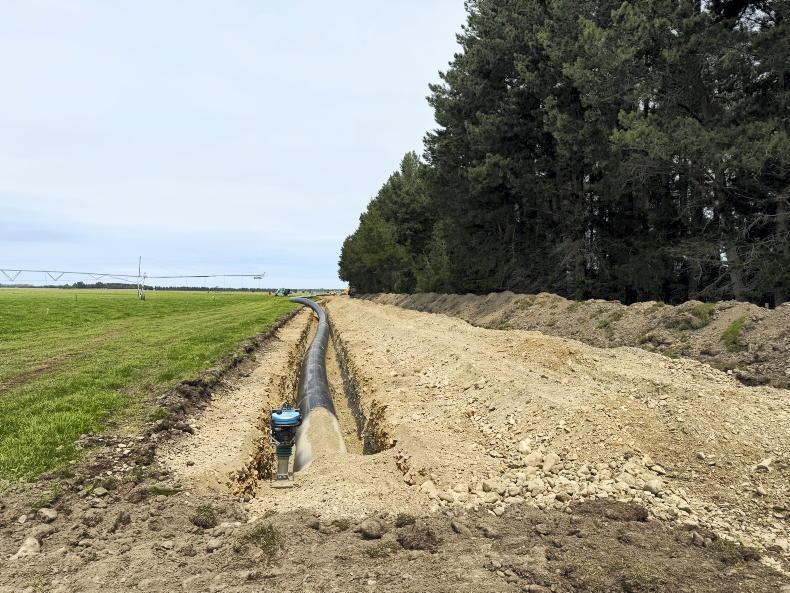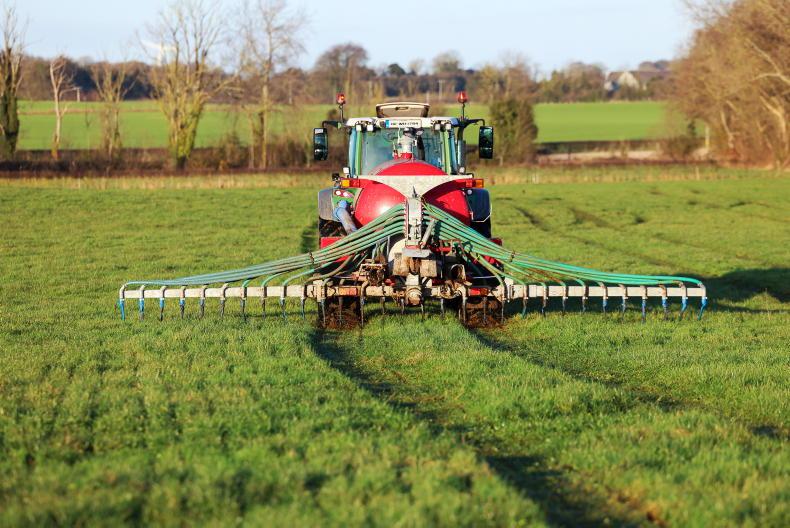A public consultation has been launched on a number of measures which are to be implemented under the nitrates action programme (NAP).
Changes to the nutrient excretion rates for calves, cutting crude protein levels in dairy nuts, changes to maximum nitrogen rates on grasslands and new slurry movement rules are among the measures proposed.
The measures were originally proposed earlier this year.
The Department of Housing and the Department of Agriculture have launched the consultation to take the public’s views into account on the measures.
The current fifth NAP runs from 2022-2025 and the changes proposed are an important element of the interim review of the programme, which commenced in 2023, the departments said.
These additional actions are aimed at delivering improvements in water quality and follow review and stakeholder engagement with the agriculture water quality working group, resulting in recommendations to both ministers on the actions proposed.
Changes
Teagasc research shows that a calf excretes 1kg of nitrogen in the first three months of its life and that it excretes a further 20kg of nitrogen over the remaining nine months.
The Department has proposed that the current annual excretion rate of 24kg of nitrogen for the an animal aged up to one year will be updated to reflect two sub-categories of the calf aged up to three months and cattle aged four to 12 months.
The nutrient excretion rate for cattle aged one to two years of age will be amended to 55kg in respect of heifers and 61kg in respect of bulls, reflecting most recent scientific work.
Crude protein
It is planned that appropriate reductions in nutrient excretion rates will apply across all three milk yield bands. Farmers have the option to consider their own position and the average annual level of concentrate crude protein they wish to feed to their herd.
Another measure proposed will see reduced maximum chemical nitrogen allowances for certain categories of grassland, while from 1 January farmers will have four days to notify the Department of the movement of slurry.
The additional measures and the natura impact statement reports are published on both departments’ websites to accompany a 30-day consultation process.
Other consultation
A separate four-week public consultation on the strategic environmental assessment for the fifth NAP additional measures is scheduled to start in mid-November.
In addition to ensuring implementation of all additional measures, both departments will be working closely on developing and finalising the sixth NAP to be in place by 1 January 2026.
The sixth NAP must be in place before a vote on Ireland’s derogation renewal by member states can occur.
Read more
New four-day rule on slurry exports
Four days to record slurry movements from 1 January 2025
A public consultation has been launched on a number of measures which are to be implemented under the nitrates action programme (NAP).
Changes to the nutrient excretion rates for calves, cutting crude protein levels in dairy nuts, changes to maximum nitrogen rates on grasslands and new slurry movement rules are among the measures proposed.
The measures were originally proposed earlier this year.
The Department of Housing and the Department of Agriculture have launched the consultation to take the public’s views into account on the measures.
The current fifth NAP runs from 2022-2025 and the changes proposed are an important element of the interim review of the programme, which commenced in 2023, the departments said.
These additional actions are aimed at delivering improvements in water quality and follow review and stakeholder engagement with the agriculture water quality working group, resulting in recommendations to both ministers on the actions proposed.
Changes
Teagasc research shows that a calf excretes 1kg of nitrogen in the first three months of its life and that it excretes a further 20kg of nitrogen over the remaining nine months.
The Department has proposed that the current annual excretion rate of 24kg of nitrogen for the an animal aged up to one year will be updated to reflect two sub-categories of the calf aged up to three months and cattle aged four to 12 months.
The nutrient excretion rate for cattle aged one to two years of age will be amended to 55kg in respect of heifers and 61kg in respect of bulls, reflecting most recent scientific work.
Crude protein
It is planned that appropriate reductions in nutrient excretion rates will apply across all three milk yield bands. Farmers have the option to consider their own position and the average annual level of concentrate crude protein they wish to feed to their herd.
Another measure proposed will see reduced maximum chemical nitrogen allowances for certain categories of grassland, while from 1 January farmers will have four days to notify the Department of the movement of slurry.
The additional measures and the natura impact statement reports are published on both departments’ websites to accompany a 30-day consultation process.
Other consultation
A separate four-week public consultation on the strategic environmental assessment for the fifth NAP additional measures is scheduled to start in mid-November.
In addition to ensuring implementation of all additional measures, both departments will be working closely on developing and finalising the sixth NAP to be in place by 1 January 2026.
The sixth NAP must be in place before a vote on Ireland’s derogation renewal by member states can occur.
Read more
New four-day rule on slurry exports
Four days to record slurry movements from 1 January 2025









SHARING OPTIONS